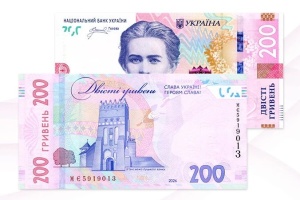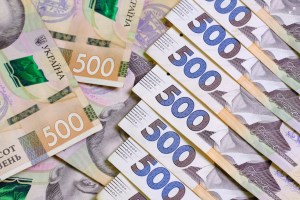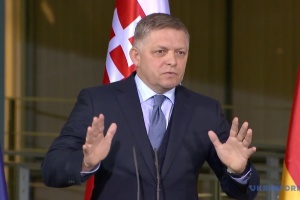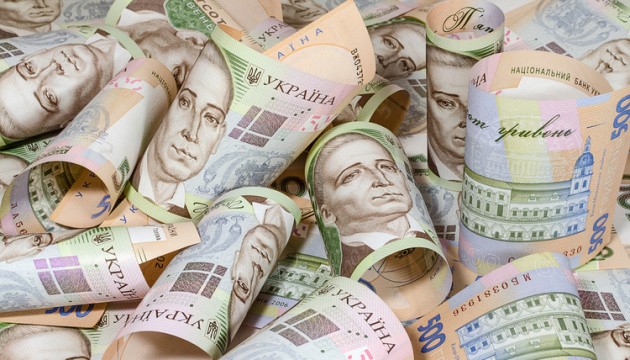
Budget: what country spent and how it earned in Q1
The revenues of the consolidated budget of Ukraine in the first quarter of 2023 exceeded UAH 627 billion (including grants of almost UAH 134 billion). This is actually half as much as in the first three months of last year. However, this year's expenditures increased even more significantly - by 1.8 times, to almost UAH 810 billion.
Despite this, the overall situation with the execution of the state budget is stable. This is primarily due to a more rhythmic flow of international financial assistance, successful (at least in terms of the amount) borrowing on the domestic market, stabilization of export revenues, and revival of business activity in relatively safe regions of the country. However, the main risks to the public finance system remain the same as last year. In addition, the country may face additional challenges, experts say.
Main sources of revenue and key expenditure items
Economists have done the math: Ukraine meets only a third of its budgetary needs on its own (an average of UAH 100-120 billion per month, with expenditures of UAH 250-300 billion). The rest is covered by borrowed funds, loans and grants from international partners.
The consolidated budget deficit (including lending) in the first quarter slightly exceeded UAH 179 billion. At the same time, the state budget deficit reached UAH 220 billion. Local budgets, on the other hand, remained in surplus (+UAH 40.9 billion).
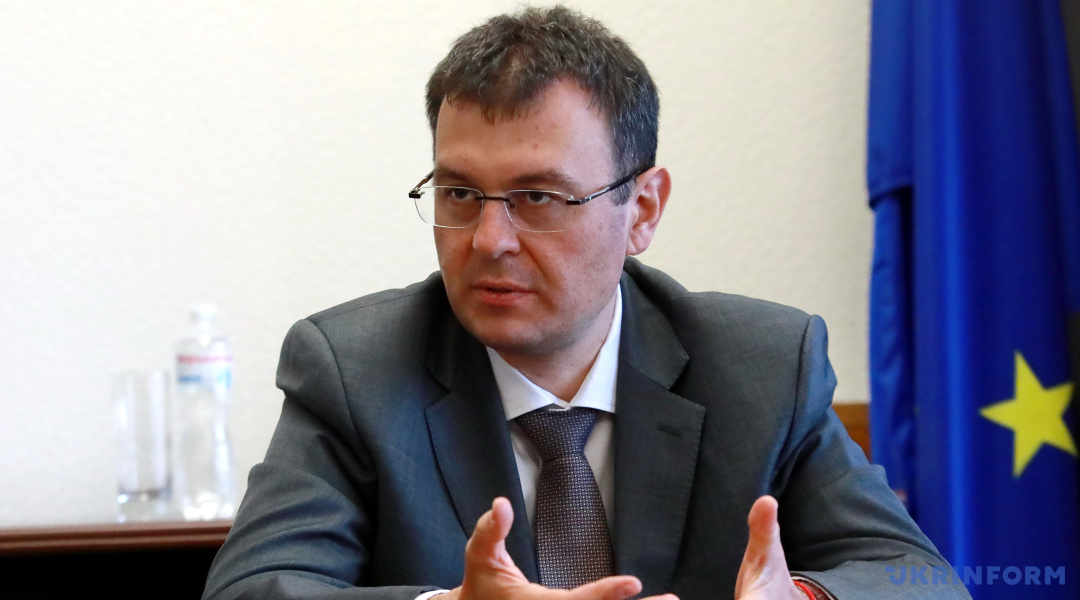
"The deficit was financed with a significant margin at the expense of internal (the difference between borrowings and repayments is UAH 57.5 billion) and external borrowings (the balance is UAH 250.2 billion)," Danylo Hetmantsev, Chairman of the Verkhovna Rada Committee on Finance, Taxation and Customs Policy, said.
In the first quarter, tax revenues increased by 9.5% (+UAH 29.3 billion) and non-tax revenues by 55.5% (+UAH 49.9 billion). The largest increase in tax revenues came from personal income tax deductions (+UAH 19.8 billion), while non-tax revenues came from budgetary institutions' own revenues (+UAH 84.6 billion).
As for expenditures, almost half of the country's own funds are spent on defense. In the first quarter, the average monthly expenditures on this item amounted to approximately UAH 160 billion.
"Defense spending increased the most - by 5.3 times, public order and security - by 1.8 times. Spending on social protection increased by 17%. And the most significant decrease was in spending on public debt service - by 27% (minus UAH 14.8 billion)," Hetmantsev said.
The structure of the consolidated budget expenditures today is as follows:
- Defense - 49.8%,
- Security and public order - 11.3%,
- Social protection - 15.5%,
- Education - 7.9%,
- Healthcare - 5.6%,
- General government functions - 5.4% (including public debt service - 3.2%),
- Economic activity - 2.6%,
- Other functions - 1.9%.
Thus, the country's domestic resources are barely enough to cover security and defense expenditures. Financing of the social sphere and other non-military expenditures is provided mainly at the expense of international assistance. In the first quarter, Ukraine received UAH 381 billion (equivalent) in grants and external borrowings from its partners.
Budgetary safety margin for the second quarter and possible reserves
The same trend - a slight overperformance of the tax revenue targets and a shortfall at Customs - continued in April. Last month, tax payments were received by about UAH 3.1 billion more than planned, while customs payments were received by UAH 2.8 billion less. So we can say that the revenue plan for these items is being fulfilled.
According to the State Tax Service, in January-April, the consolidated budget received almost UAH 338 billion in payments controlled by the State Tax Service. Over UAH 200 billion of this amount went to the state budget, and the rest to local budgets.
"The largest increase in January-April 2023 compared to the corresponding period last year was in the excise tax on manufactured and imported goods (products) - by half (+UAH 15.9 billion), tax and personal income tax - by 23% (+UAH 9.5 billion)," the Tax Service detailed.
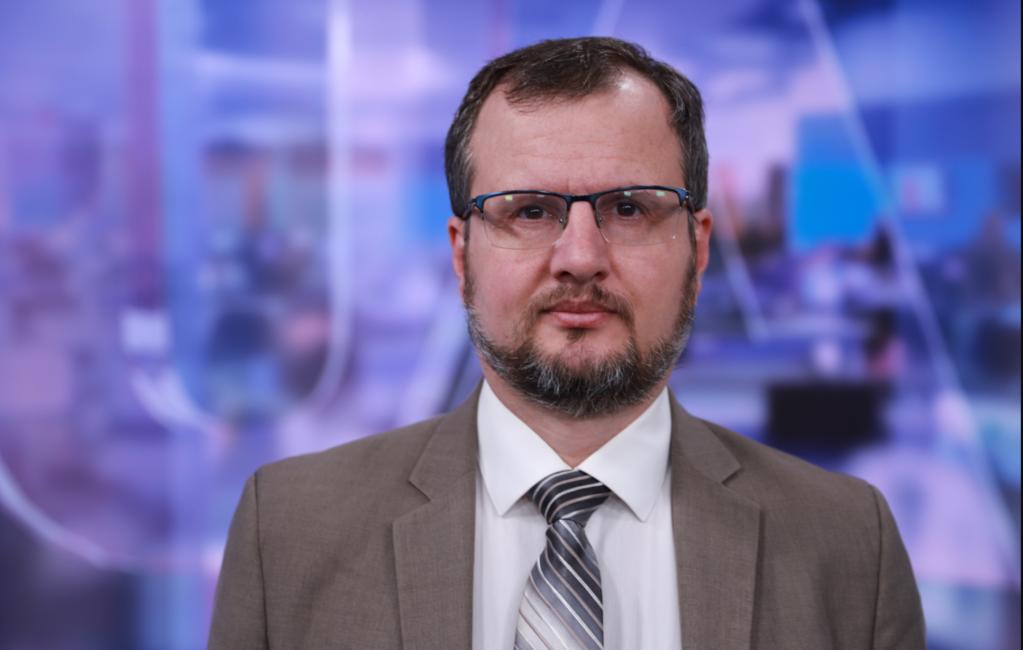
"The over-fulfillment of the tax revenue plan - including to local budgets - is primarily due to an increase in personal income tax revenues. This, in turn, is due to huge payments to the military personnel who defend the country. These payments take a significant portion of the state's resources. The lion's share of other state expenditures is financed by international partners. These payments ensure an acceptable level of budget execution. And this is not the result of the fact that our economy is healthy and the country's finances are fine," Ilya Neskhodovsky, head of the analytical direction of the "ANTS" National Interest Protection Network, explained in a commentary to Ukrinform.
The economist also explains the positive result by the continuation of the practice of unjustified blocking of tax invoices. Businesses are not being refunded part of the money they are owed. Therefore, they actually overpay to the budget.
In the economist's opinion, the permanent shortfall in revenues from the Customs is not only due to the war.
"After all, the plan is set in accordance with the current legislation and taking into account current conditions. And its underperformance is a consequence of the fact that the management of the agency was dismissed due to gross violations of customs legislation, in fact, corruption on a huge scale. Now, in fact, no one is in charge of the Customs. It is a deeply unreformed and practically decapitated structure," Neskhodovsky said.
At the same time, experts point to numerous unused reserves that depend not only on the Customs itself. For example, the budget loses UAH 12-13 billion a month due to customs privileges. Another several billion UAH a month is a shortfall due to the preferential VAT rate on fuel.
Instead, the country is likely to have a certain margin of fiscal strength thanks to record transfers of funds to the state treasury by the National Bank. Last week, the NBU transferred almost UAH 72 billion to the state budget based on the results of the regulator's activities last year.
And on Friday, the Ukrainian budget received another grant from the United States - $1.25 billion. The funds were provided through the World Bank's Trust Fund as part of the fourth additional financing for the Public Expenditure Support for Enhanced Accountability in Ukraine (PEACE) project. The money is earmarked for the payment of pensions, assistance to IDPs, and salaries of healthcare and emergency service workers. Importantly, this is a grant resource that Ukraine will not have to repay. Thus, the future debt burden will not increase.
In general, Ukraine has to rely on the assistance of foreign partners for its main financial hopes in the face of unprecedented external aggression. Since the beginning of the year, the amount provided by them has exceeded $16.5 billion. In particular, more than $6.5 billion has come from the European Union, more than $4.6 billion from the United States, and almost $1.8 billion from Canada. Another $2.7 billion is a new loan from the International Monetary Fund.
By the end of the year, Ukraine expects to receive at least another $22 billion from foreign friends.
There is also good news from the so-called "investment field". The American-Ukrainian company Horizon Capital has raised $254 million to invest in Ukrainian businesses through its Horizon Capital Growth Fund IV. The interim closing of the fund took place last Friday in Kyiv.

"Horizon Capital and our esteemed group of investors have made history as the first and largest fund raised since the start of the full-scale invasion. For some international investors, HCGF IV is the first investment in Ukraine since the beginning of the invasion and paves the way for billions of dollars in funding for many more worthy projects," said founder and CEO Olena Kosharna.
Meanwhile, the Ukrainian government signed an agreement with a U.S. delegation, including representatives of the International Development Finance Corporation and USAID, to invest $25 million in Horizon Capital to support small and medium-sized businesses in Ukraine.
Budget challenges: inevitable losses and avoidable risks
At the same time, major budgetary risks for Ukraine remain. The main challenges, of course, are related to a possible escalation of the situation at the frontline and increased enemy missile attacks on critical and production infrastructure.
Previous attacks have significantly increased the need for funds for the Ukrainian energy sector. We receive part of the resources needed to rebuild in the form of money and equipment from foreign partners. But most of the costs of preparing for the new heating season are our own responsibility. And it is quite a lot of money. According to the Ministry of Energy, it is about $3.4 billion (over UAH 120 billion).
Even more resources may be needed to support "Naftogaz Ukraine". The company expects to receive UAH 327 billion from the budget this year. First of all, as compensation for preferential gas tariffs for the population. But this year's budget does not provide money for such payments. At the end of the year, if the issue of Naftogaz's inability to fulfill its fuel supply obligations suddenly arises, it could become a major problem.
The same threats are associated with the lack of budgetary resources to compensate for other tariffs, in particular, for electricity for the population.
A separate issue is court decisions to recalculate pension payments to thousands of Ukrainians. We are talking about tens of UAH billions not provided for in the budget. The state owes 22 billion to military pensioners alone.
Not everything is stable in the "banking kingdom" either. Due to the war, destruction of collateral, loss-making activities of many businesses and loss of income by individual borrowers, the share of non-performing loans, according to the NBU, may increase by 30%. Under these conditions, Ukraine will have to recapitalize state-owned banks and possibly take some commercial banks under its wing to avoid a collapse of the banking system.
The increase in commercial lending rates will also increase the financial burden on the state in terms of implementing preferential lending programs. After all, the difference between real and preferential rates for businesses that have to be reimbursed to creditors is growing. And the budgetary resources allocated for such compensation are limited.
At the same time, even modest own revenues are at risk. Unlike in the first quarter, when, despite the spokes in the wheels of the Russian Federation, Ukraine managed to ensure rhythmic revenues from grain exports, no one can guarantee this in the coming months - at least until the new harvest is completed. First, because of the same sabotage of the maritime grain corridor by the Russian side and another ultimatum from the Kremlin, which threatens not to extend the grain agreement after May 18. Secondly, because of the decision of our European partners to restrict imports of Ukrainian agricultural products to a number of our neighboring countries and the expected slowdown in their transit.

According to Alex Lissitsa, CEO of "IMC" Agro Holding, the remaining Ukrainian grain intended for export is 12 million tons. And Ukraine may not physically have time to export it before the start of the new harvest. Even under normal conditions, it takes 4 months to export this amount of grain. Unfortunately, the conditions (see above) are unlikely to be normal. In addition, in June-July, additional problems may arise with grain exports through the Danube ports (which is about a third of the current volume of grain transshipment abroad), as Romania plans to limit Ukrainian transit due to the need to export its own harvest.
The National Bank estimates that in general, Ukrainian food exports will decrease by $200 million in the second quarter. That is, even if the maritime grain corridor continues to operate, the country will not receive more than UAH 7 billion.
According to the Ministry of Finance, this year's losses of the State Food and Grain Corporation may be approximately the same. The debt to China for a loan taken back in 2012 hangs over the SFGCU like a sword of Damocles. Moreover, the money will have to be repaid to the creditors from the budget, since the government was the guarantor of the loan.
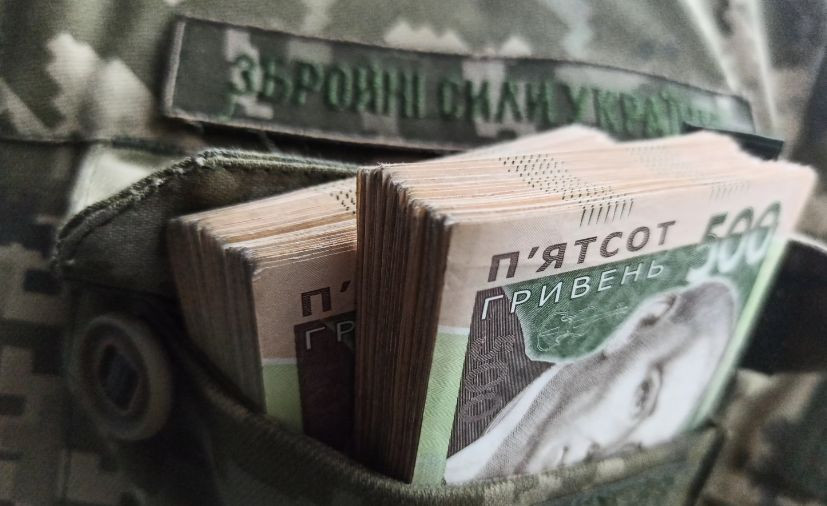
How will the possible return of additional payments to the security forces affect the budget?
And finally, much will depend on solving the problem of finding sources of funding for the return of monthly payments of UAH 30,000 to all military and security personnel. Both the government and the IMF are talking about the risks of an uncontrolled increase in the budget deficit if no real sources are found. And this is more than $4 billion.
According to the IMF Resident Representative in Ukraine Vahram Stepanyan, "finding resources of this magnitude will likely require drastic short-term tax measures or substantial borrowing on the domestic financial market, but such measures are virtually impossible without a very negative impact on the economy and financial market."
At the same time, borrowing to finance such expenditures could further jeopardize the sustainability of Ukraine's debt, which is already under pressure.
While preparing this article, the head of the Servant of the People parliamentary faction, David Arakhamia, said that the security forces propose to postpone consideration of the resolution on paying military personnel a UAH 30,000 bonus and instead create a joint working group and develop a bill that will regulate the issue of remuneration for defenders.
Ilya Neskhodovsky believes that instead of canceling this bonus, the government should clearly define the circle of its recipients.
"I agree that it is incorrect to pay UAH 30,000 per month to absolutely all law enforcement officers. For example, why should a police officer in Zakarpattia [region] receive this supplement? Compared to peacetime, he has virtually no additional risks. More precisely, these risks are the same as for other citizens. The same applies to payments to employees of the State Emergency Service who do not respond to calls related to missile attacks or shelling and do not engage in demining," the expert says.
Instead, a clear definition of all categories whose work involves a risk to life and directly meets the needs of the frontline would significantly reduce the number of people eligible for such assistance. Consequently, the need for funds would be reduced.
"The second point. Let's not forget that these UAH 30,000 are used to pay personal income tax and unified social tax, which are actually returned to the budget in the form of taxes. That is, if we need UAH 150 billion by the end of the year, approximately UAH 50 billion will be returned. This should also be taken into account," Neskhodovsky reminds.
As for finding the necessary additional resources, the economist is convinced that savings can be made on the same food supply for the Armed Forces. After all, the Ministry of Defense continues to buy food at prices many times higher than other departments.
The state budget revenues can also be increased by strengthening control in such industries as gambling. The revenues from its operation in March-April have increased many times compared to the previous year and the beginning of this year.
"Or take the mining industry, for example. To be honest, I don't understand why private businesses have been granted rent payment privileges. This is a huge loss for the budget, tens of UAH billions. Please send this money to our military, not give it to those who, excuse me, have been robbing Ukraine throughout its independence," advises Ilya Neskhodovsky. He hopes that in the end the government and MPs will be able to find the necessary resources to repay such payments and convince the IMF that this will not lead to additional budgetary risks.
Experts also see reserves for non-emissionary increases in military and non-military budget expenditures in "de-shadowing," increasing the efficiency of public procurement, and attracting additional donor funds for rapid reconstruction.
Vladislav Obukh, Kyiv

